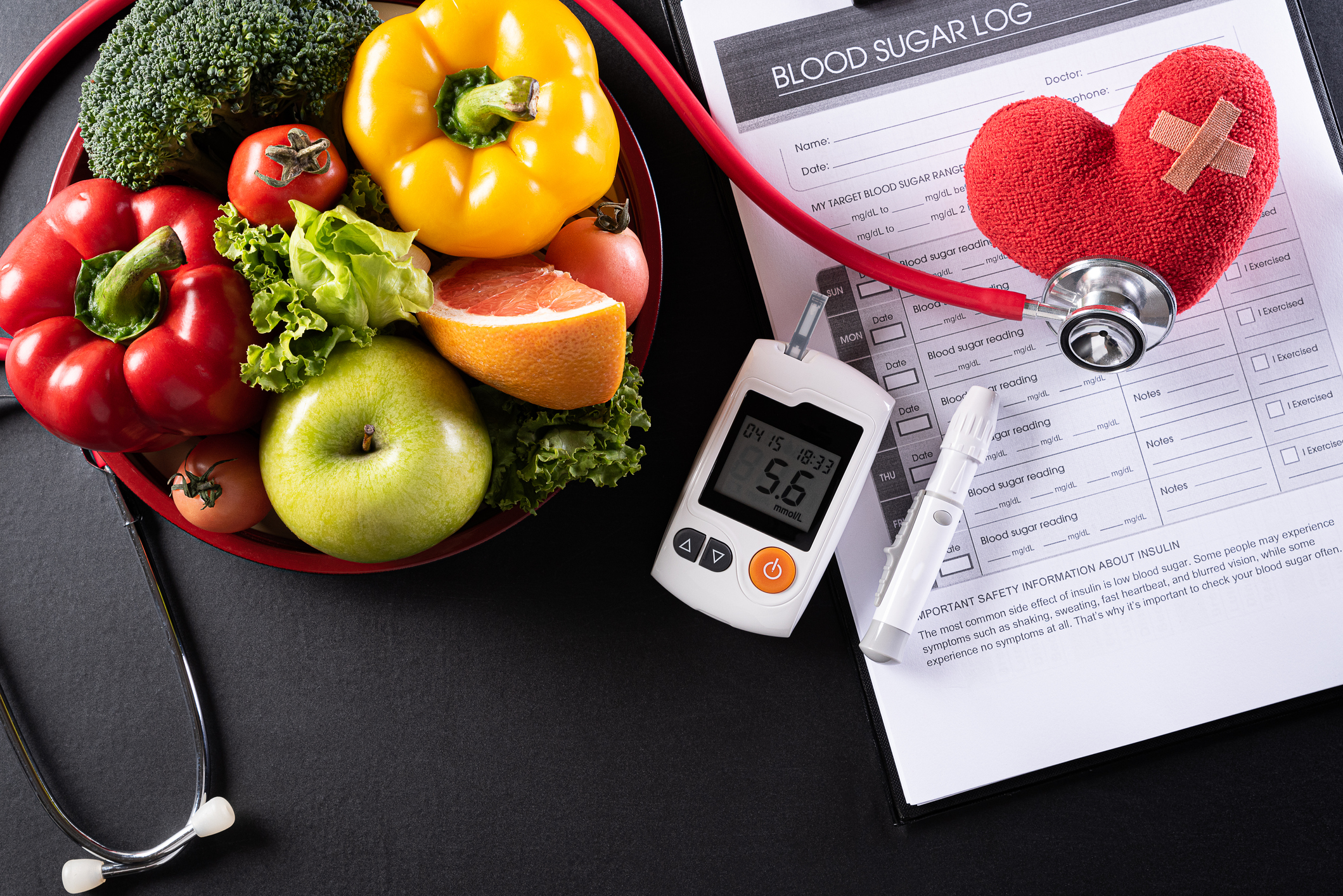
Approximately 1 out of every 12 adults in India is diagnosed with diabetes [1,2]. This number strongly correlates with my family of 12 members, where my uncle has diabetes. This prompted me to investigate further within my immediate relatives. Once again, I discovered that one of my aunts has also been diagnosed with diabetes. It is highly likely that you will also encounter several of your own loved ones suffering from diabetes either silently or explicitly.
Diabetes is a chronic disease associated with either abnormal production of insulin or the cell sensitivity to insulin [1]. It is a common disorder that can significantly reduce a person’s quality of life and increase cost on the healthcare system, and leads to more need for access to care [2]. India has the second highest number of diabetics after China, with a total of 9.3% [77 million] population diagnosed with diabetes as per 2021 data. According to an estimate, this number is expected to rise to over 124 million by 2045 [2].
The high prevalence of Diabetes can be attributed to factors like, change in lifestyle, sedentary behavior, unhealthy eating habits, genetic predisposition and age [4]. A decade back, Diabetes was a disease of the urban population, more prevalent in higher income strata of society. Now, Diabetes has got no barrier, It is affecting all those with risk factors and genetic predisposition.
It is scary how diabetes has almost turned into the largest global health crisis of the century. Unmanaged diabetes can lead to serious and life-threatening complications, such as heart attack, stroke, kidney failure, blindness and lower-limb amputation. It’s not surprising to find that diabetes is one of the top 10 reasons for high mortality [2].
A person needs proper care, support and education for the proper management of diabetes. Let’s unpack all the myths and get to the understanding of the disease and also to the secrets of living a long healthy life easily.
Myths regarding diagnosis:
If one or both of the parents have diabetes, then the child will develop it too.
Fact: Genes play a major role in the development of both type 1 and type 2 diabetes, but solely genes are not enough. Genes predispose the children to the disease, which is then triggered by the environment and makes the disease actually happen [3]. Every step toward early diagnosis, access to appropriate care [2], maintaining a healthy weight through exercise and a healthy balanced diet, as per the genetic makeup of the body, will delay or prevent type 2 diabetes [3].
Only overweight and obese people can develop type 2 diabetes.
Fact: It is true that excess weight is a risk factor for developing diabetes, but many people who have diabetes are not overweight. According to the American Diabetes Association (ADA), a number of other risk factors: lack of physical activity, age, family history and ethnicity [Afro-Caribbean, Black African, or South Asian] can also be at play [4].
Eating sugar causes diabetes.
Fact: Eating sugar and sweets doesn’t cause diabetes, but can contribute to weight gain, and that can increase your risk of diabetes [4,6]. Still, cutting back on sugar is generally a good idea for your overall health [6]
If you have diabetes, you will know it.
Fact: In India, more than 50% of people are unaware of their diabetes status [2]. That may be because diabetes can develop slowly, over several years, and some may not experience any symptoms. When symptoms do arise, they are unnoticed and untreated, leading to diabetes complications such as heart attacks and strokes, neuropathy [nerve damage], nephropathy [kidney damage] and infections [2, 7]. Early genetic testing and blood screening is recommended to prevent diabetes and its complications [2].
Myths regarding Medical Management:
If I have diabetes, I just have to keep my blood sugar under control to be fit.
Fact: Diabetes does not only alter blood sugar levels, but in fact it affects all the systems of your body. That’s why it is important to keep your blood Pressure, cholesterol, uric acid and weight under check which is also helpful for a healthy heart [7].
Manage high blood sugar with only medications.
Fact: Hyperinsulinemia, a feature of type 2 diabetes, is strongly linked to the quantity and the quality of carbohydrates of the diet [7]. A diet high in refined carbohydrates will raise both glucose and insulin levels post meal.
I can stop taking diabetes medicines once my blood sugar is under control.
Fact: Some people with type 2 diabetes are able to control their blood sugar without medicine by maintaining ideal weight, following healthy eating habits and regular exercise routine. But diabetes is a progressive disease. Over time, even if you are doing all you can to stay healthy, it's recommended to monitor blood sugar levels regularly and get a hba1c checked after every 3 months [7]. If you notice any abnormality in parameters, you may need medicine to keep your blood sugar within your target range.
If the doctor recommends insulin, it means that the situation is severe.
Fact: People with type 1 diabetes must use insulin because their body no longer produces this important hormone [4]. Type 2 diabetes is progressive [7], which means that the body makes less insulin over time. With passing time, exercise, diet changes, oral medicines and non-insulin injectable medicines may not be enough to keep your blood sugar in control. Then, you need to use insulin to keep blood sugar in a healthy range [4].
Type 2 diabetes isn't as serious as type 1 diabetes/ Diabetes isn't a big deal.
Fact: Both type 1 and type 2 diabetes are serious conditions and there is no such thing as 'mild diabetes'. Unmanaged diabetes is a leading cause of kidney failure, lower limb amputations and blindness in adults [2]. As per 2016 reports, diabetes is the seventh biggest cause of early death in India [5]. Effective lifestyle changes with regular treatment can reduce the risk of complications and help manage diabetes in the long term.
Diabetes is contagious.
Fact: Diabetes cannot be caught off by someone else. Diabetes is categorized as being a non-communicable illness. The only way in which diabetes can be passed on is from parents to their own children but even this is only a genetic likelihood of diabetes [4] and not the condition itself.
Myths regarding Dietary Management:
Eating less, controls blood sugar levels.
Fact: The blood sugar will definitely be low if you eat less but the weakness which follows will hamper your daily activities or it may lead to hypoglycemia (low BS) and unconsciousness.
Once the blood sugar is normal; I can start eating everything.
Fact: Blood sugar depends on the type of food eaten, the amount of physical activity (exercise) and the stress levels; which keep on changing daily [7]. So if you are planning to go on an unplanned diet, eating everything after the blood sugar is normal, your blood glucose levels are definitely going to rise.
I have diabetes, so I can never eat sweets.
Fact: Sweets are full of simple sugars and raise blood glucose levels more than other foods. But they are not off limits for people with diabetes, as long as it is planned. It's best to save sweets for special occasions or as a treat. Eat sweets in small amounts and always in place of other carbohydrates usually eaten at a meal. If insulin is used, health care providers may instruct higher doses than normal on special occasions where sweets are to be consumed [4, 5].
Myths regarding Lifestyle:
Type 1 diabetes can be reversed by making lifestyle changes.
Fact: Following a healthy diet and an exercise routine plays an important role in managing type 1 diabetes, While there is no known cure. People with type 1 have to rely on insulin injections throughout their lives [8].
People with diabetes are more likely to get colds and other illnesses.
Fact: Diabetics are not more likely to get a cold or another illness. Although, any illness can make diabetes more difficult to manage, and that's why people with diabetes who get the flu are more likely than others to go on to develop serious complications [4].
It's not safe to exercise with diabetes.
Fact: Getting regular exercise is an important part of managing diabetes and its complications. Exercise helps boost insulin sensitivity, improve cholesterol profile, lower HbA1C, improve sleep and energy levels [9]. A good goal should be to aim for at least 150 minutes of moderate-to-vigorous exercise per week and include two sessions a week of strength training [9] as part of your exercise routine.
People with diabetes shouldn’t be involved in sports.
Fact: High-prominence diabetic sportsmen and women have disproved this diabetes myth. A well planned diet with certain precautions should be considered before partaking in sport, otherwise there is no reason why people with diabetes can’t participate in most cases. Both aerobic and resistance exercise have shown to be beneficial in the management of symptoms and prevention of diabetes complications [5, 9]. Jordan Morris - American professional soccer player and Wasim Akram - Pakistani cricketer set an example for budding athletes with diabetes.
References:
-
Mathur P, Leburu S, Kulothungan V. Prevalence, Awareness, Treatment and Control of Diabetes in India From the Countrywide National NCD Monitoring Survey. Front Public Health. 2022 Mar 14;10:748157. doi: 10.3389/fpubh.2022.748157. PMID: 35359772; PMCID: PMC8964146.
-
International Diabetes Federation. (2021). Over 74 million adults are living with diabetes in India – second highest number in the world. World Diabetes Day 2021
- Radha, V., Vimaleswaran, K. S., Deepa, R., & Mohan, V. (2003). The genetics of diabetes mellitus. Indian Journal of Medical Research, 117, 225-238.
- Myths about Diabetes// Diabetes Myths | ADA
- Diabetes Myths// Diabetes Myths - 10 Common Diabetes Myths
- Rai M, Kishore J. Myths about diabetes and its treatment in North Indian population. Int J Diabetes Dev Ctries. 2009 Jul;29(3):129-32. doi: 10.4103/0973-3930.54290. PMID: 20165650; PMCID: PMC2822217.
- Polikandrioti, M., & Dokoutsidou, H. (2009). The role of exercise and nutrition in type II diabetes mellitus management. studies, 1, 5.
- Katsarou, A., Gudbjörnsdottir, S., Rawshani, A. et al. Type 1 diabetes mellitus. Nat Rev Dis Primers 3, 17016 (2017). https://doi.org/10.1038/nrdp.2017.16
- Colberg SR, Sigal RJ, Fernhall B, Regensteiner JG, Blissmer BJ, Rubin RR, Chasan-Taber L, Albright AL, Braun B; American College of Sports Medicine; American Diabetes Association. Exercise and type 2 diabetes: the American College of Sports Medicine and the American Diabetes Association: joint position statement executive summary. Diabetes Care. 2010 Dec;33(12):2692-6. doi: 10.2337/dc10-1548. PMID: 21115771; PMCID: PMC2992214.




